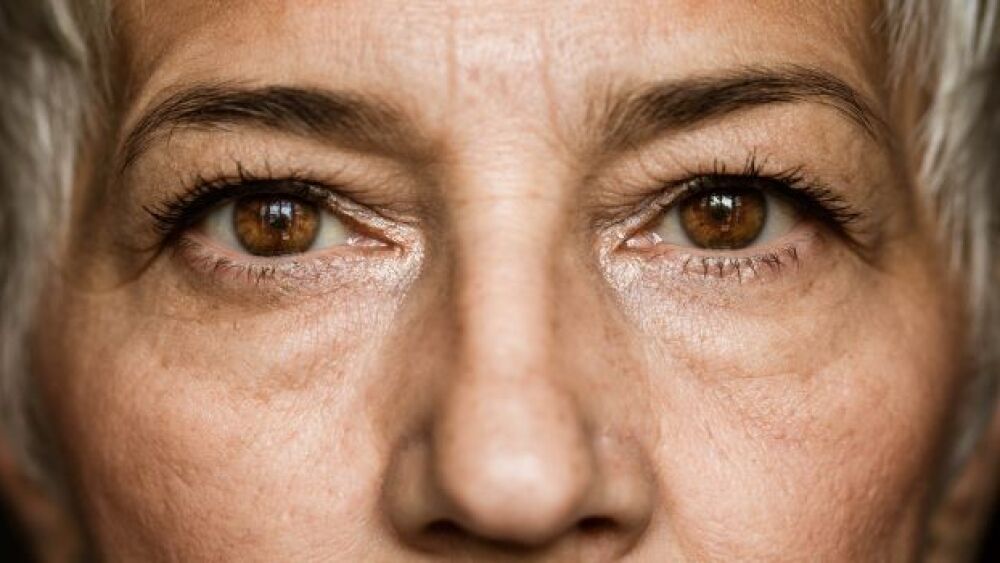UNITY Biotechnology’s lead asset, UBX1325, failed to show non-inferiority to Regeneron’s blockbuster Eylea in a Phase II wet age-related macular degeneration trial.
Photo shows close-up of a woman’s eyes/Courtesy Getty Images
UNITY Biotechnology’s lead asset, UBX1325, failed to show non-inferiority to Regeneron’s blockbuster Eylea (aflibercept) in a Phase II wet age-related macular degeneration (wAMD) trial. This sent the biotech’s shares tumbling 46% in premarket trading on Monday.
The 24-week data are from the Part A portion of the proof-of-concept Envision study of UBX1325, a Bcl-xL inhibitor. The trial involved 51 patients with wAMD who received either two 10 mcg doses of UBX1325 at week zero and week four or anti-VEGF agent aflibercept 2 mg every eight weeks.
The trial used the Early Treatment Diabetic Retinopathy Study (ETDRS) to assess the therapies, which revealed an early and unexpected visual gain of 3.5 ETDRS letters with aflibercept, according to Unity. The 3.5-letter gain with aflibercept was mostly maintained for the study’s duration.
UBX1325 monotherapy, meanwhile, reduced letters by 0.8 from baseline.
Patients were already receiving aflibercept when they enrolled in the trial, but benefit from the therapy was not optimal, according to the press release. More than half (52%) of patients who received UBX1325 did not require anti-VEGF treatment throughout the 24 weeks of the trial, UNITY reported.
UNITY CEO Anirvan Ghosh said the company plans to assess and optimize its resource allocation to continue developing UBX1325 following a full analysis of the trial results. The company will share an update on the long-term extension (Part B) portion of the Envision trial in the coming weeks.
UNITY is also conducting pre-clinical evaluations of UBX1325 to treat diabetic macular edema (DME). The company announced in November 2022 that UBX1325 had met its safety and efficacy endpoints at 24 weeks in the Phase II Behold trial.
UNITY CMO Jamie Dananberg said that the relatively stronger efficacy observed in DME may be related to the distinct underlying pathophysiologies of the two diseases.
The company also plans to present 48-week data on the Behold DME trial in the coming weeks.
UNITY shares were down 46% to $2.24 in premarket trading Monday, compared to Friday’s closing of $4.15.
As of this writing, UNITY has not responded to BioSpace‘s request for comment.






